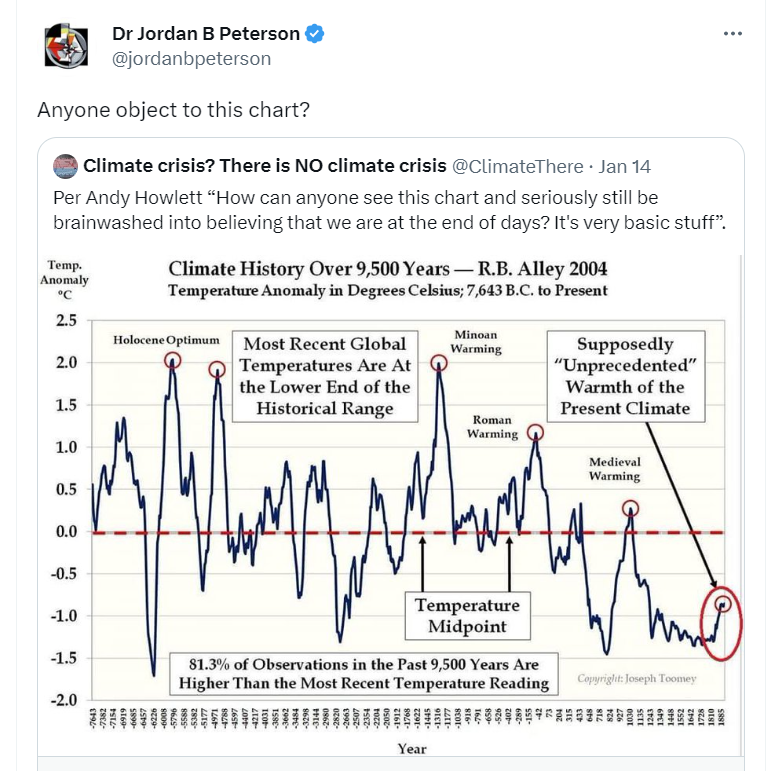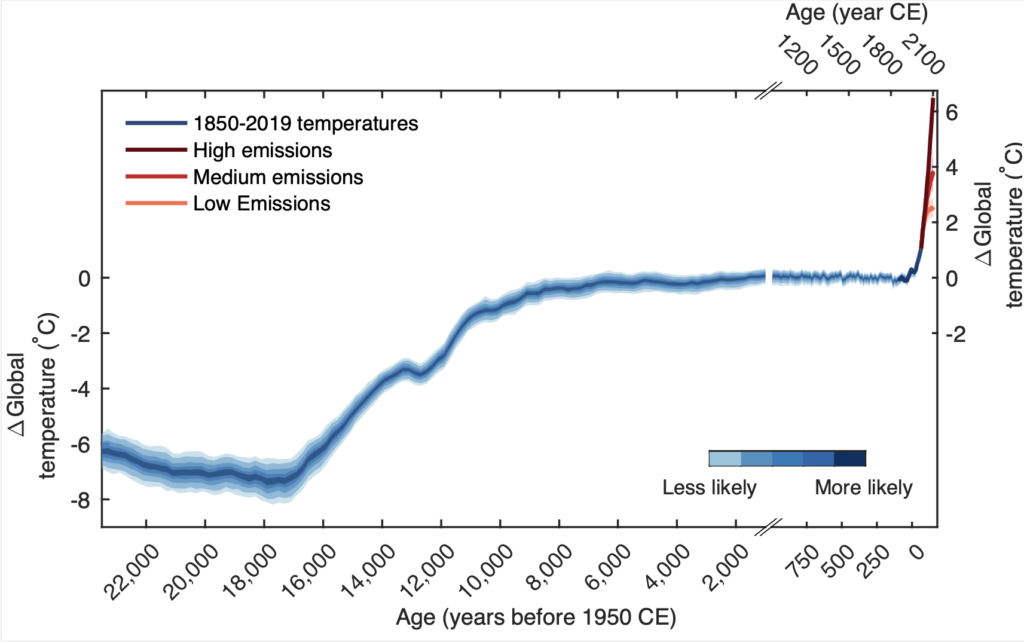Podcast: Play in new window
Subscribe: Apple Podcasts | RSS | More
Dan McClellan is a public scholar of the Bible and religion and author of the book YHWH’s Divine Images: A Cognitive Approach.

*****
I don’t much talk about Jordan Peterson, I don’t think that he is as interesting a character as the internet makes out, certainly not as interesting as he thinks he is himself.
In case you’ve been living under a rock for the past few years, he’s a Canadian clinical psychologist and university professor, who got a lot of attention for, what seemed to me, pretty basic psychological observations; I think he got that attention because he couched those observations in terms that appealed to a right-wing audience. I don’t think that it would be fair to call him alt-right, he doesn’t seem to like the extreme right, but they do seem to like him, because he was able to articulate criticisms of the left in an impressive-sounding way, and they were happy to ignore his criticisms of the right, which, to be fair, he did make.
This fanbase has earned him sacks of money, from Patreon sponsorship, to massive book deals and speaking tours. So, fine, there are lots of authors that I’m sceptical of.
And, I have to say, I think he made one case for conservativism, political conservativism, that I think is pretty convincing. Basically, he says that the way our society is set up has got us all here to where we are today. Over evolutionary time, more than 99 per cent of all species have gone extinct. Over the past few million years, a whole slew of hominids, our cousins, have gone extinct – the Neanderthals, the Denisovans and so on.
And, from prehistory to today, many societies of modern humans, many cultures, many groups have essentially been wiped out, either by forces internal or external. But we haven’t.
By definition, whatever we have been doing up to now works, because it got us here. Peterson’s argument is, essentially, that we should be very careful changing what we know works for the latest fad, some bright idealistic way to reform society, because there is no certainty that idea will work, and we have certainty that what we have been doing up to now does work, for us anyway.
That argument is not as strong as he thinks it is, because one of the things that has got us here today is that we innovate. That’s what humans do. We’re good at adapting to the new situations. Penguins live quite well in Antarctica, but I don’t think they would do well competing with lions in the tropical jungle. Humans, by contrast can live in both, and many more environments too.
But despite that weakness, his point is valid. Now, Peterson started off by commenting based on his experience in psychology, and he is well qualified in that area, but since he hit the jackpot of book deals and speaking tours, he has massively expanded the areas that he is eager to comment on, everything from Brexit to Climate Change; and unlike with psychology, he has no qualifications to talk on these topics, and it shows.
It’s very obvious that he is producing content on demand for his right-leaning audience. Despite his unfamiliarity with the topics he’s talking about, he still maintains the snarky tone of someone who knows that he is better qualified than his opponent, and wants to let everyone else know that.
In this vein, he retweeted recently a chart from a climate-change denying Twitter account, which purports to show the last 10,000 years of temperature record, with the recent increase in global temperatures being dwarfed by much bigger swings in the Roman and Minoan warm periods.

The chart is laughably wrong. Firstly, it doesn’t show global temperature, it shows the interpretation of a single ice core. It is possible for historic temperatures to be worked by studying long-frozen ice, but it is done by taking thousands of samples, not just one.
But most of all, the data on the chart stops at 1885. You heard that right. The years are marked in tiny numbers at the bottom, but there is no data at all on the chart for almost the last 150 years, so it obviously doesn’t tell us anything at all about the extent of recent climate change.
The data series on the chart is also zoomed in a way to make temperature changes like the Roman and Minoan warm periods seem enormous, and it makes a small uptick at the end of the chart, circled in red, look tiny. That small uptick is labelled sarcastically on the chart as the “supposedly ‘unprecedented’ warmth of the present climate”, but of course it is no such thing, because, as I said, the end of the chart is 1885. But Peterson retweeted this chart with the ironic comment “Anyone object to this chart?”
This chart, by the way, has been doing the rounds of climate-change denying blogs and Twitter accounts for years, and has been entirely debunked.
Now, there is a better chart of the global temperature trends for the last 10,000 years – it’s for the last 22,000 years actually. This graph uses multiple, independent sources of temperature records, thousands of them, it goes right up to the present day, and is based on work by Dr Matt Osman of the University of Arizona, and it’s been peer-reviewed and published in the highly-respected scientific journal Nature.

I’m putting links to all of these, and the graphics involved, on the blog post for this podcast, by the way.
Osman’s graph shows the temperature bouncing around in prehistoric time, and then getting significantly warmer about 10,000 years ago, and being remarkably stable from then until very recently. Basically, global temperature is a flatline from 10,000 years ago until our grandparents were born, and since then has spiked up sharply, and is predicted to increase even further.
10,000 years ago is significant. Very significant. 10,000 years ago is when the last ice age was ending. Mammoths were dying, sea levels rose, the world got warmer – stably warmer – and civilisation in Mesopotamia, and then other areas, flourished. Humans changed from being hunter-gatherers to farming; domesticating livestock and raising crops.
Farming was a far more efficient way of producing food, so people who all had to work all day long just to eat before, could now do things like bake bread from flour and use other long-lasting foods, invent architecture and build everything from the pyramids to Newgrange, and invent writing and get educated – and that created a snowball effect where knowledge is efficiently stored and passed on, and that gave us our modern society.
All of that happened in the last 10,000 years, in a period of remarkable climate stability. It is safe to say that it could not have happened in any other time where there were quite sharp swings in climate. You couldn’t invent agriculture unless the same food crops could grow in the same place for extended periods, and you couldn’t do any of the other things unless you invented agriculture and liberated a huge amount of time, that would otherwise be spent on foraging for food.
The other thing that the chart from Dr Osman and his team shows is the global temperature increase that we already have brings us well outside the range of temperature stability that we had for the whole existence of human civilisation. But the future scenarios, based on high, medium and low carbon emissions bring us much further.
The high emissions scenario means basically keeping on doing what we are doing now. That would lead to temperatures further away from the happy medium that our civilisation grew up in, than anything that existed in our hunter-gatherer existence where we spent the whole of our days, and the whole of our short, miserable lives scraping what we could from the dirt to have enough to eat.
And Peterson’s point is correct; there is no inevitability of the survival of our society, we’ve survived this far because conditions favoured us. Change them radically in an unthinking way and, like the 99 per cent of species that have gone the way of the dodo, there is no guarantee that we will survive for much longer either.
We are busily creating an Earth upon which we have no idea how to live in large numbers and reasonable comfort. That’s a challenging idea. That’s an idea that should alarm any genuine conservative. But it’s not an idea for a huckster who makes millions by pedalling whatever he thinks will get his fanboys paying for his latest book.







